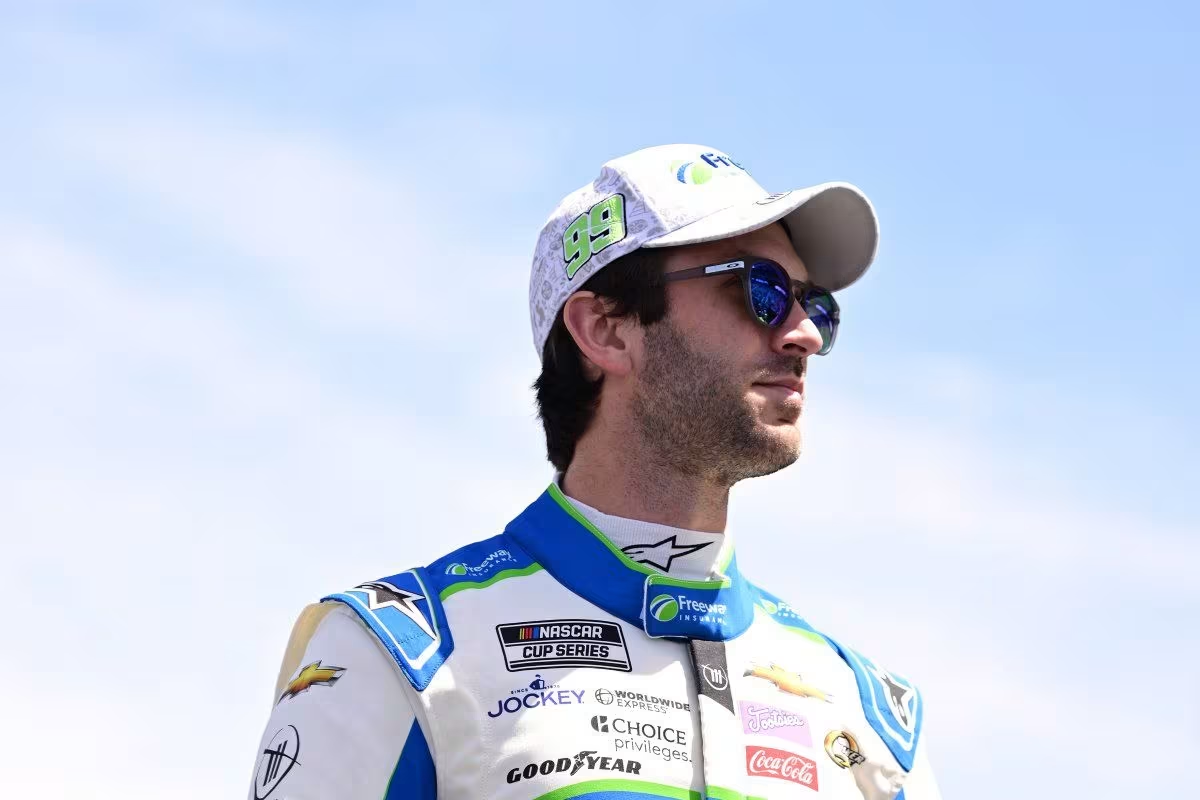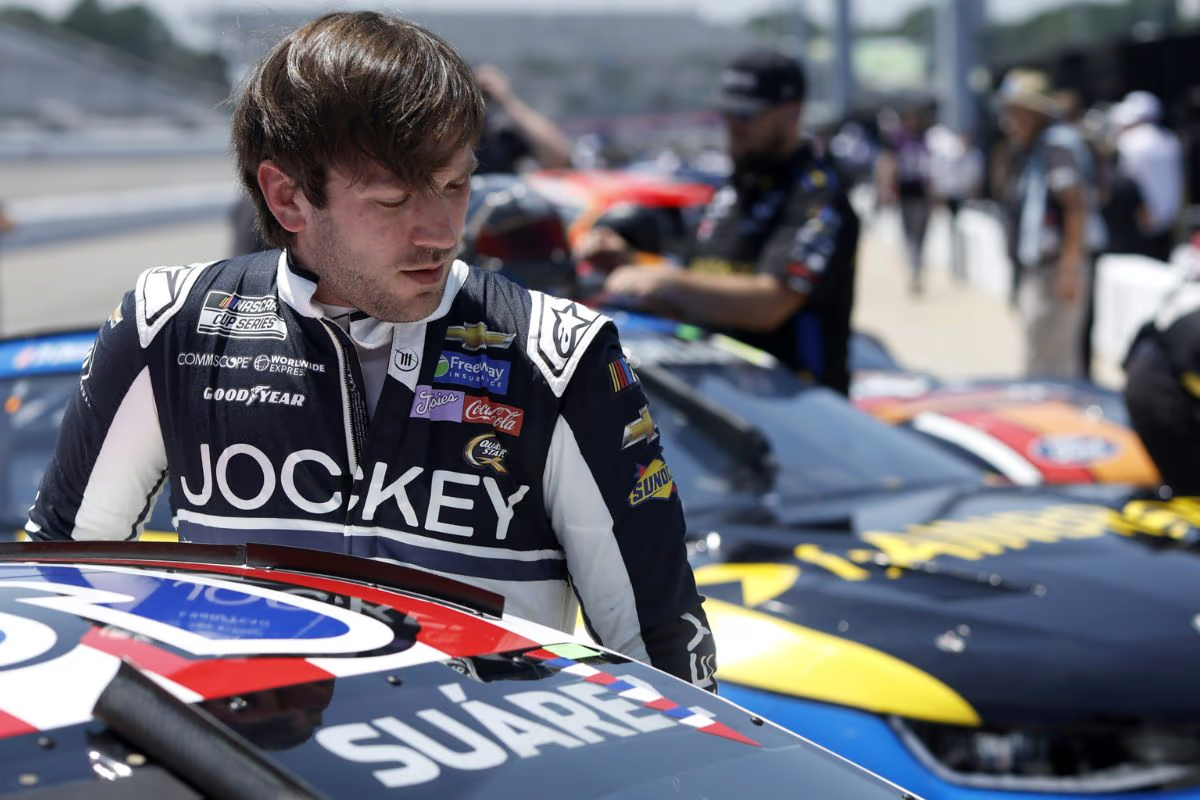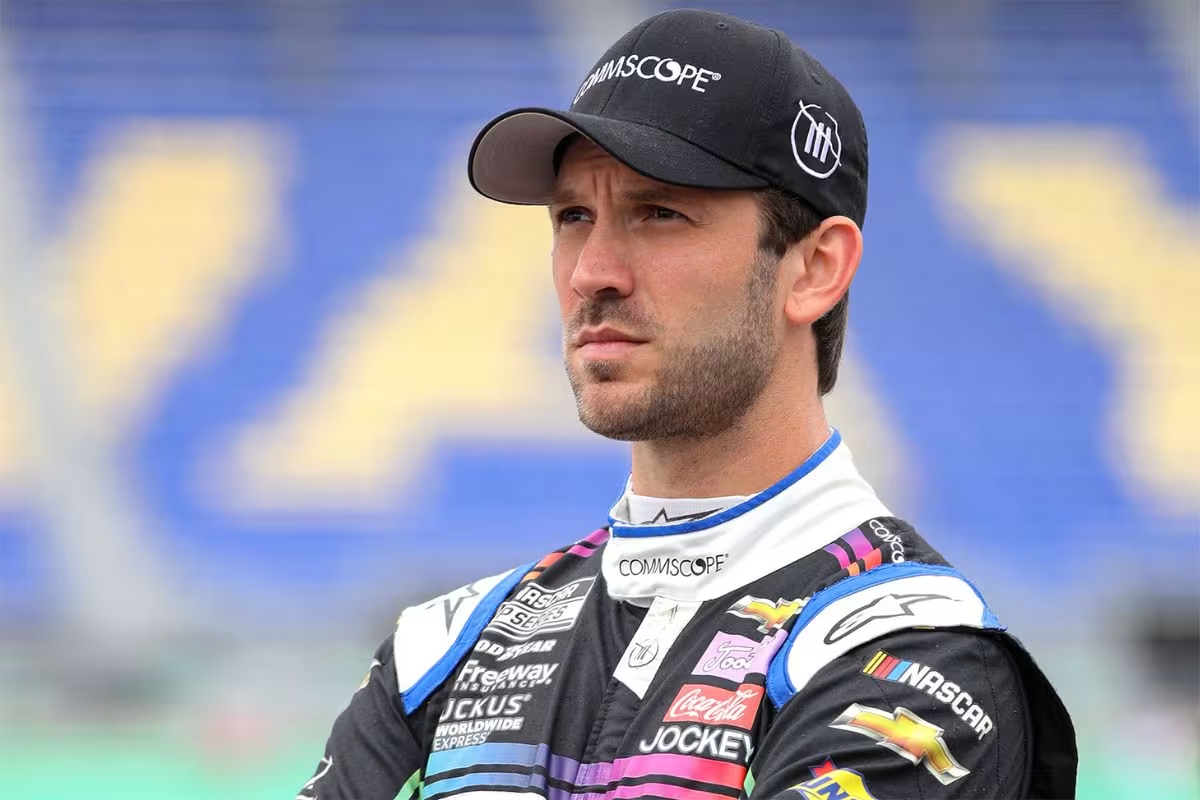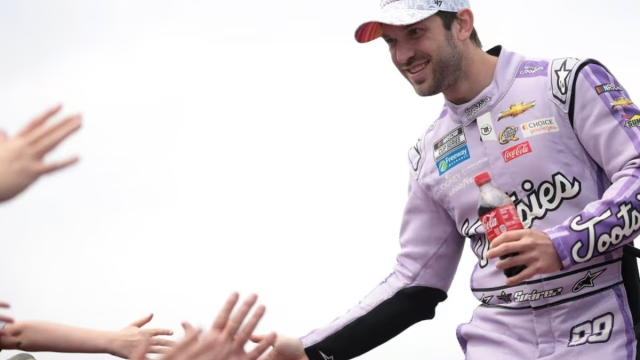Anonymous Driver’s Scathing Remarks About Daniel Suarez: Anonymous criticism of Daniel Suarez’s racing style has stirred a wave of speculation among NASCAR fans. The comments highlights tension and rivalry within the competitive sphere, especially following Daniel Suarez’s elimination from the playoffs. While some fans view the remarks as warranted, others believe they reflect deeper issues of racing dynamics and personal rivalries.
Key Highlights
- Anonymous criticisms of Daniel Suarez’s racing style reflect underlying tensions among drivers in the competitive NASCAR environment.
- Fans speculate on the identity of the critic, adding intrigue to the narrative surrounding Suarez’s performance.
- Some fans justify the criticism, pointing to Suarez’s inconsistent racing as a factor in playoff challenges.
- Ryan Blaney faces accusations of hypocrisy, as his emotional reactions contradict his competitive behavior towards Suarez.
- The rivalry dynamics in NASCAR highlight how ambition and pressure influence both driver behavior and fan perceptions.
Driver Discontent at the ROVAL
What drives the tensions among drivers during critical races like the Bank of America ROVAL 400? The interplay of competition, skill, and the intense stakes involved creates an environment ripe for friction.
In the context of the Charlotte Roval, the dynamics become even more pronounced, as drivers navigate a complex layout while vying for crucial championship points.
“OK, you can tell the 99 (Suarez) he’s done. F***ing d***head. … How many laps left in this sh** show?”-(anonymous tweet)
Recent events highlighted this tension when an anonymous driver publicly criticized Daniel Suarez’s racing style during the race. This discontent was encapsulated in a scathing remark that accentuated the frustration felt by some competitors. The quote, surfacing on social media, emphasized the burdens inherent in racing—where split-second decisions can compromise individual performance and the standings of entire teams.
In races like the ROVAL, where precision and strategy are paramount, even minor infractions can lead to noteworthy repercussions. Drivers, acutely aware of the implications, may respond defensively to perceived aggressiveness or inconsistency from their peers.
The anonymity of the critic suggests a reluctance to escalate tensions openly, yet the frustration permeates the atmosphere, affecting both on-track behavior and off-track relationships.
Ultimately, such incidents reveal the undercurrents of rivalry that exist within the tightly-knit world of NASCAR. The combination of ambition and the quest for victory guarantees that the ROVAL—like any other high-stakes event—serves as a crucible for both talent and temperament, shaping the narratives that define a season.

Fan Reactions
The recent anonymous criticism of Daniel Suarez’s racing style has ignited fervent discussions among fans, revealing the complexities of driver dynamics within NASCAR. Intrigued by the veiled remarks, fans have taken to social media to speculate on the identity of the critic and the implications of the comments.
“Ahhh keeping it cryptic SMH,”
“Name a driver who whines more than Blaney,”
“Suarez races that way every race”
-(fans reaction)
These reactions demonstrate the divisive nature of racing opinions, serving as a reminder that in the world of NASCAR, performance and personality are often intricately intertwined.
Daniel Suarez’s Playoff Elimination
Daniel Suarez’s elimination from the NASCAR playoffs represents a pivotal moment in his 2024 season. After a strong early run that included a victory at Atlanta, his playoff campaign became increasingly challenging. The Charlotte Roval race, where he needed a win to advance, ultimately sealed his fate, highlighting the razor-thin margins that often define success in NASCAR’s postseason.
Suarez entered the Round of 12 with optimism but struggled to maintain momentum. His 13th-place finish at Kansas, a race where his teammate Ross Chastain claimed victory, further underscored the differences within the Trackhouse Racing team.
While Chastain’s performance led him forward, Suarez was left fighting to keep his championship hopes alive, only to fall short when it mattered most.

Performance at the ROVAL
Daniel Suarez’s performance at the Roval exemplified the challenges faced by drivers in the playoffs. Competing against a backdrop of fierce competition and high expectations, Suarez struggled to find his footing, which ultimately culminated in his elimination from the playoff rivalry.
Suarez’s expedition at the Roval was marked by several crucial factors that contributed to his disappointing performance:
- Early Challenges: A crash in the initial stage at Talladega set a negative precedent, impacting his momentum and confidence.
- Consistent Struggles: Throughout the Roval race, Suarez failed to gain notable ground, finishing in 30th place and accumulating no stage points.
- Field Dynamics: The competitive nature of the playoff field intensified the strain, making it increasingly difficult for Suarez to navigate effectively.
- Cohesive Tactics: A lack of tactical execution during critical moments hindered his ability to capitalize on opportunities that could have salvaged his position.
As a result, Suarez’s performance at the Roval not only reflected his personal challenges but also highlighted broader themes prevalent in NASCAR’s playoff system, where a single misstep can lead to devastating consequences.

News in Brief: Anonymous Driver’s Scathing Remarks About Daniel Suarez
The recent controversy surrounding an anonymous driver’s essential comments regarding Daniel Suarez has ignited considerable speculation among fans. As discontent grows within the racing community, particularly following Suarez’s elimination from the playoffs, discussions about performance at the ROVAL have intensified. This situation highlights the complex dynamics of competition and the influence of interpersonal relationships in motorsport. Continued analysis of these developments will be vital in understanding their implications for team morale and future performances.
ALSO READ: Denny Hamlin Accuses Daniel Suarez of Intentional Chaos—Is There a Hidden Agenda?
